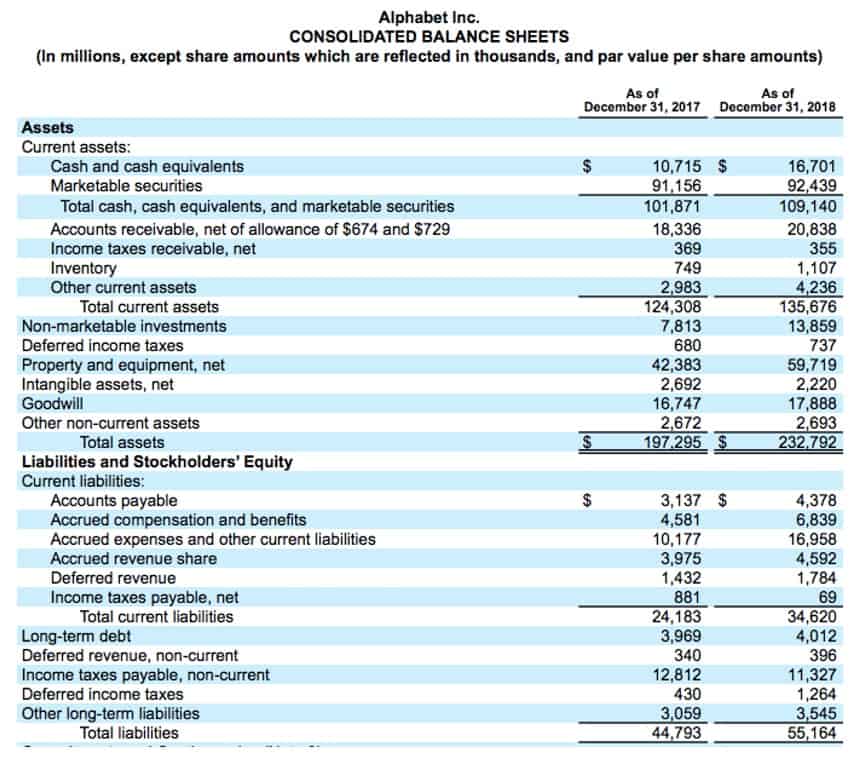Accounting for Startups: A Beginner’s Guide
by siteadmin

Before a venture capitalist, angel investor, or any other type of investor deploys money into your startup, they need a clear understanding of your startup’s financial position, business growth projections, and cash flow. In fact, even after you secure funding for your startup, you will need these numbers to report the financial performance of your company to investors. Hiring a startup accountant isn’t required, however, accounting services are strongly recommended no matter your business size or stage. Tax compliance is a subset of due diligence, and your accountant can help you explain to the VC fund or the acquirer that you have followed all federal and local rules and regulations. This is becoming an increasingly important part of later-stage due diligence and M&A diligence, so make sure you have an experienced startup accounting firm if you are raising big VC $$.
As a startup founder, you need the experts to fill the gaps, give you answers, and propose smart solutions that are backed by experience. If the word “never” comes to mind, you may want to skip this part. However, if you’re game, there are times when you should probably handle accounting for your business. You’ll also want to keep startup cpa track of those smaller expenses such as parking fees, postage, printing, and mileage. Tracking business expenses properly will make sure that your year-end deductions are accurate and that you have the documentation to prove it. Your supplier calls to let you know that they won’t be shipping any products until you pay your bill.
Best High-Yield Savings Accounts Of September 2023
Every rising startup needs someone to help with bookkeeping, monthly end close, financial reporting, tax filing, to advisory and fundraising services. Having one CPA firm that covers a full range of services can simplify things for you. Let’s say your startup owns fixed assets such as lab equipment, company vehicles, or a building. A CPA will understand exactly how to depreciate and amortize assets. If you’re doing research and development on how to innovate, a CPA has the right skills for finding qualified expenses to help you get the tax credits. If you’re still on the fence about handling basic bookkeeping or accounting for your business, you’re not alone.
By choosing us, Austin’s startups gain a valuable ally in their financial journey, equipped with the knowledge and tools to thrive in one of America’s most vibrant entrepreneurial ecosystems. For the first, most VC-backed startups will go through complicated financial due diligence during a funding round or during an M&A exit to a large technology player. Later-stage VCs are increasingly hiring outsourced due diligence experts – including large accounting firms. The team at a huge accounting firm that is investigating your startup’s financials will have pages upon pages of questions. Having a CPA who knows your company and financials (and tax returns) on your side will make due diligence that much easier and less painful.
Choose a Business Structure
The value of having someone who understands your complete financial situation really can’t be overstated. Firms that rely on automated accounting systems or who provide limited services can easily miss potential problems, like invoicing issues, double payments, and missed collections. Your accountant should function as a partner, who supports the success of your startup and helps your company achieve its goals. For more information https://www.bookstime.com/articles/bookkeeping-for-landscaping-business about the value of accounting services for your startup, contact us. Founder’s CPA is a public accounting firm that provides personalized services to venture-backed startups with an industry expertise in blockchain, cryptocurrency, FinTech, and SaaS. With an “accounting department as a service” model that is both flexible and scalable, we combine technical capabilities across multiple resources into one service offering.

They should be familiar with the financial modeling, tax requirements, and reporting for your industry. They should also have knowledge of your internal operations and other nuances to help reduce your tax liabilities or mistakes that could trigger an IRS audit. If the demands of startup life mean you don’t have time to learn QuickBooks, or if you’d rather leave bookkeeping to a pro, try Bench (that’s us). When your startup is in its early stage, chances are your budget will be tight. In this case, you may want to consider managing your business’s books yourself. This key startup metric, at its simplest, is how much cash you have on hand vs. how much you spend each month.
Before a venture capitalist, angel investor, or any other type of investor deploys money into your startup, they need a clear understanding of your startup’s financial position, business growth projections, and cash flow. In fact, even after you secure funding for your startup, you will need these numbers to report the financial performance of your…
Recent Posts
Recent Comments
Archives
- May 2024
- April 2024
- March 2024
- February 2024
- January 2024
- December 2023
- November 2023
- October 2023
- September 2023
- August 2023
- July 2023
- June 2023
- May 2023
- April 2023
- March 2023
- February 2023
- January 2023
- December 2022
- November 2022
- October 2022
- September 2022
- August 2022
- July 2022
- June 2022
- May 2022
- April 2022
- March 2022
- February 2022
- January 2022
- December 2021
- November 2021
- October 2021
- September 2021
- August 2021
- July 2021
- June 2021
- May 2021
- April 2021
- March 2021
- February 2021
- January 2021
- December 2020
- November 2020
- October 2020
- September 2020
- August 2020
- July 2020
- June 2020
- April 2020
- March 2020
- February 2020
Categories
- ! Без рубрики
- ¿Cómo apostar en 1xBet? Guía Paso a Paso, Opiniones, Cómo Entrar 190
- 11 Best Crypto Exchanges and Apps of September 2023 214
- 165
- 1win
- 1win Azerbajany
- 1Win Brasil
- 1winRussia
- 1xbet apk
- 1xbet Argentina
- 1xbet Azerbajan
- 1xbet Azerbaydjan
- 1xBet Azərbaycan: rəsmi saytın nəzərdən keçirilməsi 16
- 1xbet Brazil
- 1xbet giriş
- 1xbet Kazahstan
- 1xbet qeydiyyat
- 1xbet Russian
- 5.03-2
- 915
- AI News
- Android üçün Mostbet mobil tətbiqini pulsuz necə yükləmək olar? Ən son idman xəbərləri 985
- Artificial Intelligence
- Aviator oyna və qazan Rəsmi sayti Aviator Azerbaycan 294
- Aviator oyunu kazandırıyor nasıl oynanır, hilesi, taktikleri 273
- Aviatorun Sirrini Tapdıq!!! 3000 Manat Qazanc Aviator Taktikaları 737
- AZ Most BET
- Azerbajany Mostbet
- b1bet apostas
- Bahsegel giris
- Best Crypto Exchanges in Australia Updated September 2023 889
- Betmotion brazil
- Betsat
- Bettilt casino
- blog
- Bonus za Rejestracje 50 DS 819
- Bookkeeping
- casino
- Casino sitesi
- Casinonews
- Codere Argentina
- Codere Italy
- Código promocional 1xBET España Guía de registro y apuestas 538
- Cryptocurrency exchange
- Cryptocurrency service
- Education
- FinTech
- Forex Reviews
- Forex Trading
- Generative AI
- Greek Online casinos
- Immediate Edge Review 2023: Scam or Legit Secret? – 754
- India Mostbet
- IT Education
- IT Vacancies
- IT Вакансії
- IT Образование
- Kasyno Mobilne Grać na Automatach Online 193
- LeoVegas Finland
- LeoVegas India
- LeoVegas Irland
- LeoVegas Sweden
- Lucky Jet
- mostbet apk
- mostbet az 90
- MOSTBET AZ idman bahis şirkəti: ilk depozit bonusları 909
- Mostbet Azerbaijan
- Mostbet Azerbaycan
- Mostbet Casino Review UFABET 179
- mostbet giriş
- Mostbet in Turkey
- Mostbet India
- mostbet kazino Promosyon 101 150
- mostbet kirish
- MostBet Mobile App və Bukmeker Şirkətinin Mobil Versiyası 554
- MostBet online kumarhanesinde Aviator oynayın kayıt 916
- mostbet ozbekistonda
- Mostbet Promo Code for India for Free 717
- mostbet royxatga olish
- Mostbet Turkey resmi sitesi 387
- mostbet uz
- mostbet uz kirish
- Mostbet Uzbekistan
- Mostbet: Türkiye'de Online Casino Mostbet Online Slotlar ve Canlı-Casino 521
- Neumo Paslanmaz Pin-Up kazino-dan pul çıxara bilmezsiniz, texniki desteye müraciet edin – 464
- New
- News
- news2024
- newsapotheke
- NEWSCASINO
- NLP algorithms
- Online casino
- Online Casino Österreich
- Online casinos Greece
- onlinecasino
- oyunu sındırmaq mümkündürmü? 353
- pagbet brazil
- Paribahis
- Pin Up Peru
- Pin-Up Casino kontorunun təsviri, pin up az 366
- PinUp apk
- pinup Brazil
- resmi site Casino Mostbet para için Mostbet çalışma aynasında çevrimiçi oynayın, kayıt olun 488
- Sober living
- Software development
- test2
- test3
- topcasino
- Türkiye'deki Mostbet Bahis Şirketi 894
- Türkiye'deki Mostbet Uygulamasını İndirin 796
- Ucategorized
- Uncategorized
- UZ Most bet
- Vulkan
- Vulkan Vegas Bonus Code 50 Freispiele Für Kunden 2022 326
- Vulkan Vegas Casino Bonus 1500 Promo Code 2023 584
- Vulkan Vegas DE
- vulkan vegas DE login
- Vulkan Vegas kod promocyjny 2021: 4000 zł + 125 FS 116
- Vulkan Vegas Poland
- Vulkan Vegas Promo Code mit Freispielen und Bonusguthaben! 614
- Vulkan Vegas Telegram 327
- VulkanVegas Login: Odkryj niesamowity świat hazardu 670
- VulkanVegas Poland
- Выиграй 9000000 сум в букмекерской конторе Мостбет 470
- Новости Криптовалют
- ПАрущуки
- Приложения MostBet для Android, IOs и Windows 763
- Скачать Mostbet UZ на Андроид apk и IOS: обзор букмекера 479
- Финтех
- Форекс Брокеры
- Форекс обучение
- Форекс партнерская программа
